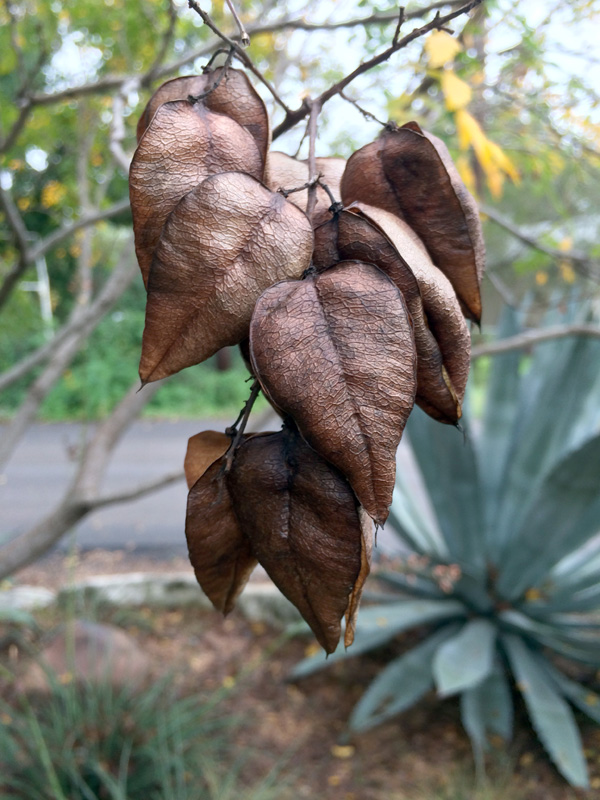November: Winterize your lawn and plants to protect from disease.
Posted in Monthly Reminders by oscar on Friday, November 7, 2014

Here are a few things to keep in mind for this month.
WINTERIZING
Although your lawn’s root system will continue to develop during winter, most grasses become dormant and appear brown or at least less green. As the temperature becomes cooler and cooler it is important to continue to provide the root system with additional food to boost its development. Fertilizing with a good winterizer will give you the best chances of developing next year’s beautiful lawn. Ask us for recommendations on the best winterizer brands for your particular needs. Top dressing, for us is the best way to winterize your lawn and flower beds is the best way to protect your plants/grass from disease.
COLD SNAPS
Special considerations for those times when the mercury takes a nose dive. Now is the time to cut back on your watering schedule though you still need to water during the winter. Your irrigation system can be reduced to 1 to 2 times per week, depending on how established your landscape is. Some irrigation systems have a ‘seasonal adjust’ feature on their irrigation controllers which will cut the watering time down on each zone. However, be sure to keep an eye out for water run off. Not only is water runoff wasteful, lower tempertures mean that the rate of evaporation is greatly reduced and this can lead to fungal problems.
VEGETABLE GARDENS
Gardening in Central Texas can be challenging and a labor of love. Because of the hot sun, drought-prone summers and soils that tend to be comprised of heavy clay which are low in nutrients and don’t drain well, a lot of care and creativity are required. Most often, soil amendments need to be made using manure and/or nitrogen. Another solution is to lighten the soil by tilling in some sand. The best thing is to have us come out and take a sample of the soil in order to analyze what your specific needs are.
Another solution is to consider using containers. When you use containers, you don’t have worry about modifying your topsoil. Cucumbers, eggplants, herbs, tomatoes and peppers all do very well in containers. We can gladly come by for a free consultation if you’re interested in getting your own vegetable gardens started. The sooner you start after the last frost, the better the chances are that your plants will be ready before the sun starts beating down in mid-July.
PESTS/DISEASES
Watch the roots of removed annuals for nematodes. Nematodes are a very diverse species. About 20,000 exist. Some are beneficial and helpful in controlling grubs, fleas, fungus, gnats and over 200 other pests that develop in soil. Other nematodes are on the complete opposite end of spectrum and are harmful to plants and attack the roots, stem or foliage tissues. Depending on the plant, the effects of these harmful nematodes warrant concern. The damage done can range from merely stunted plants to all out plant death. Control and management is required asap, so keep an eye out for knots on the roots of removed annuals. Call us for assistance. Fungi problems will appear very clear at this time of the year. If you see any spots in your lawn please let us know so we can assess for you.
MULCH
With the plethora of fall foliage on the ground, the best way to reduce, reuse and recycle is to consider using your own leaves for a customized mulch. It fairly easy to do and all you would require from us to ground up your leaves and add some fertilizer to it.
If you have any other needs, information or questions, please don’t hesitate to give Oscar a call. He’s always happy to be of service and drop by for a chat and a quick assessment.
Again, thank you for sticking with us! We appreciate you!
![]() and the crew
and the crew
TAGS: aerating, best time to plan trees, fungi treatments, mulch, top dressing, treat for webworms, winterize
No comments
No hay comentarios
Aún no hay comentarios.
Suscripción RSS a los comentarios de esta entrada.
Disculpa, los comentarios están cerrados.